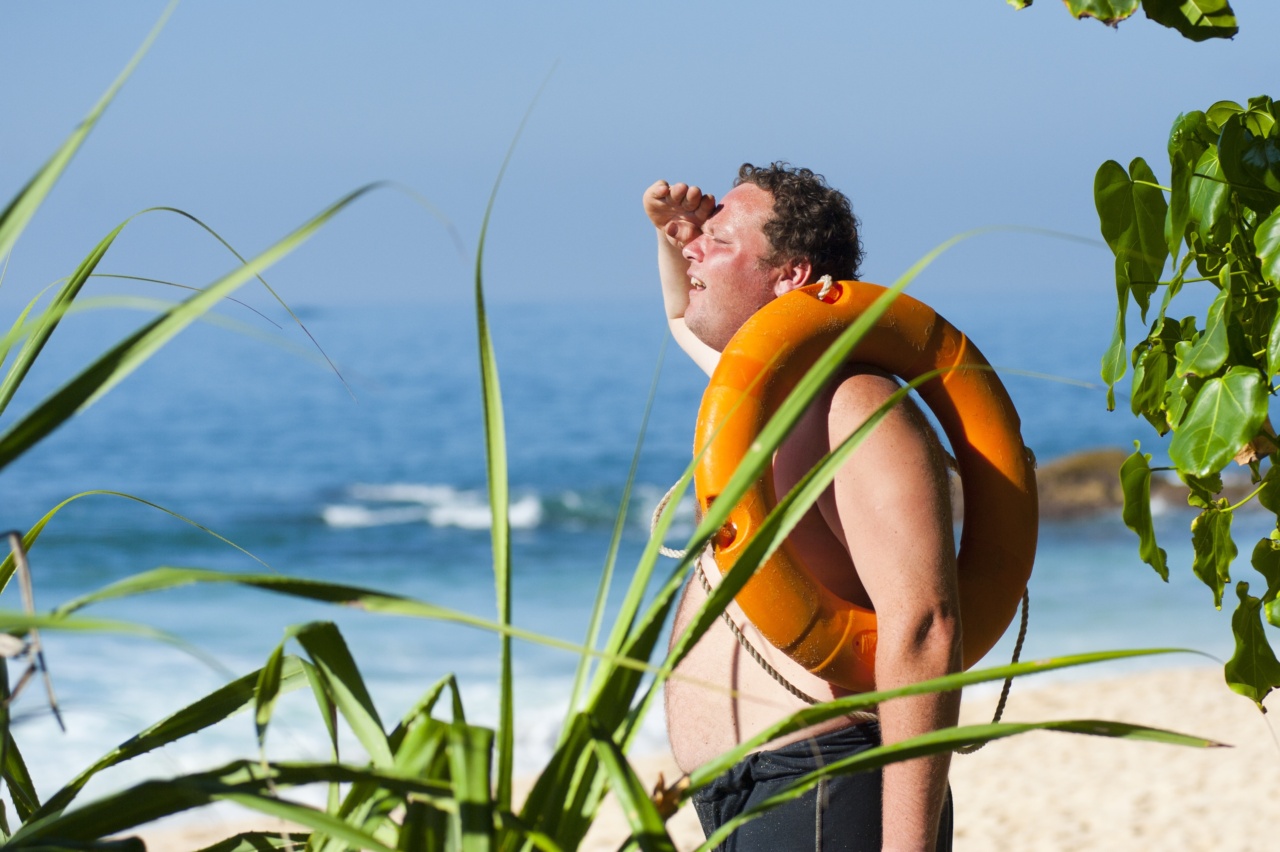As the summer season approaches, many people are excited to spend their days basking in the warmth of the sun at the beach. However, it is essential to remember the damaging effects of the sun’s rays on our skin.
Sunburn, in particular, is a common ailment that can put a damper on your beach day. In this article, we will explore the causes and consequences of sunburn and provide practical tips on how to overcome it at the beach.
The Causes of Sunburn
Sunburn occurs when our skin is exposed to ultraviolet (UV) radiation from the sun for extended periods without proper protection. UV radiation is divided into UVA and UVB rays.
UVA rays are responsible for premature aging, while UVB rays are the primary cause of sunburn. When our skin is exposed to these rays, it triggers the production of melanin, the pigment responsible for our skin color.
However, our skin’s defense mechanism can only handle a limited amount of UV radiation. When the exposure surpasses our skin’s protective abilities, the result is sunburn.
The severity of sunburn can vary from mild redness to painful blisters, depending on the intensity and duration of UV exposure.
The Consequences of Sunburn
Although sunburn is often seen as a temporary inconvenience, its consequences can be quite severe. In the short term, sunburn can cause pain, discomfort, and swelling. It may also lead to headaches, fever, and fatigue in some cases.
Additionally, sunburned skin can hinder our body’s ability to regulate its temperature, making it harder to cool down on a hot summer day.
Long-term effects of sunburn include an increased risk of skin cancer, premature aging, and the development of sunspots and wrinkles.
Prolonged sun exposure without protection can damage the DNA in our skin cells, leading to mutations and, ultimately, skin cancer. Skin damaged by the sun may also lose its elasticity and firmness, causing premature aging.
Preventing Sunburn: The Basics
The best way to overcome sunburn at the beach is to prevent it from happening in the first place. Follow these essential tips to protect your skin:.
1. Apply Sunscreen:
Choose a broad-spectrum sunscreen with an SPF of 30 or higher. Apply it generously to all exposed areas of your skin, including your face, ears, and neck. Reapply every two hours or more frequently if you have been in the water or sweating profusely.
2. Seek Shade:
When the sun’s rays are the strongest (usually between 10 am and 4 pm), try to seek shade under an umbrella, tree, or building. Limiting direct exposure to the sun during these hours can significantly reduce the risk of sunburn.
3. Wear Protective Clothing:
Opt for lightweight and light-colored clothing that covers most of your skin. Long-sleeved shirts, long pants, and wide-brimmed hats provide excellent protection from the sun’s harmful rays.
Don’t forget to wear sunglasses with UV protection to shield your eyes.
4. Stay Hydrated:
Drink plenty of water throughout the day to keep your body hydrated. Sunburn can dehydrate your skin, so replenishing fluids is essential to maintain skin health.
Beach-Specific Tips to Prevent Sunburn
1. Choose the Right Spot:
Look for a location at the beach with natural shade, such as under a palm tree or cliff. This will provide additional protection from the sun’s intense rays.
2. Use Beach Umbrellas:
If natural shade is limited, bring a beach umbrella or rent one to create your own shade. Position it in a way that covers the majority of your body to minimize direct sun exposure.
3. Apply Sunscreen Correctly:
Ensure you cover all exposed areas with sunscreen, paying extra attention to commonly forgotten areas such as the tips of the ears, back of the neck, and tops of the feet.
4. Wear Swim Shirts and Hats:
Swim shirts with built-in UV protection can provide an extra layer of defense against sunburn. Pair it with a wide-brimmed hat for added protection for your face and neck.
Overcoming Sunburn: Remedies and Relief
Despite our best efforts, sunburn can still occur. If you find yourself with a sunburn at the beach, here are some effective ways to alleviate the discomfort:.
1. Cool Compress:
Apply a cold, damp towel or take a cool shower to cool down your sunburned skin. Avoid using hot water, as it can further irritate the burnt areas.
2. Moisturize:
After cooling down, gently apply a moisturizing lotion or aloe vera gel to the affected areas to soothe the skin and promote healing. Avoid using petroleum-based products, as they can trap heat and prolong the healing process.
3. Stay Hydrated:
Continue to drink plenty of fluids to combat the dehydration caused by sunburn. Water, herbal teas, and light fruit juices can help hydrate your body and replenish lost electrolytes.
4. Take Over-the-Counter Pain Relievers:
If your sunburn is accompanied by pain or discomfort, you can take over-the-counter pain relievers such as ibuprofen or acetaminophen. Always follow the recommended dosage and consult a healthcare professional if needed.
Conclusion
While the beach offers a delightful escape from the daily grind, it is crucial to prioritize our skin’s health and protect it from harmful UV radiation.
By following preventive measures such as proper sunscreen application, seeking shade, and wearing protective clothing, we can minimize the risk of sunburn and its long-term consequences. However, if sunburn does occur, remember to take prompt action to alleviate discomfort and promote healing. Enjoy your time at the beach while keeping your skin safe!.






























